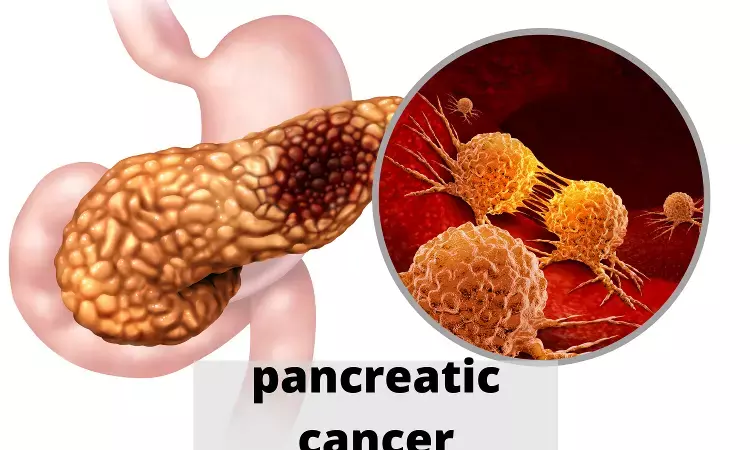- Home
- Medical news & Guidelines
- Anesthesiology
- Cardiology and CTVS
- Critical Care
- Dentistry
- Dermatology
- Diabetes and Endocrinology
- ENT
- Gastroenterology
- Medicine
- Nephrology
- Neurology
- Obstretics-Gynaecology
- Oncology
- Ophthalmology
- Orthopaedics
- Pediatrics-Neonatology
- Psychiatry
- Pulmonology
- Radiology
- Surgery
- Urology
- Laboratory Medicine
- Diet
- Nursing
- Paramedical
- Physiotherapy
- Health news
- Fact Check
- Bone Health Fact Check
- Brain Health Fact Check
- Cancer Related Fact Check
- Child Care Fact Check
- Dental and oral health fact check
- Diabetes and metabolic health fact check
- Diet and Nutrition Fact Check
- Eye and ENT Care Fact Check
- Fitness fact check
- Gut health fact check
- Heart health fact check
- Kidney health fact check
- Medical education fact check
- Men's health fact check
- Respiratory fact check
- Skin and hair care fact check
- Vaccine and Immunization fact check
- Women's health fact check
- AYUSH
- State News
- Andaman and Nicobar Islands
- Andhra Pradesh
- Arunachal Pradesh
- Assam
- Bihar
- Chandigarh
- Chattisgarh
- Dadra and Nagar Haveli
- Daman and Diu
- Delhi
- Goa
- Gujarat
- Haryana
- Himachal Pradesh
- Jammu & Kashmir
- Jharkhand
- Karnataka
- Kerala
- Ladakh
- Lakshadweep
- Madhya Pradesh
- Maharashtra
- Manipur
- Meghalaya
- Mizoram
- Nagaland
- Odisha
- Puducherry
- Punjab
- Rajasthan
- Sikkim
- Tamil Nadu
- Telangana
- Tripura
- Uttar Pradesh
- Uttrakhand
- West Bengal
- Medical Education
- Industry
Microvascular complications of diabetes linked to pancreatic cancer

CHINA: According to a study published in the Journal of the Endocrine Society, early-stage chronic kidney disease, a microvascular complication of Diabtetes Mellitus Type 2, substantially predicted pancreatic cancer (PaC), but not the macrovascular complications.
A major public health issue, diabetes mellitus (DM) affects around 463 million people globally at this time. Numerous microvascular and macrovascular problems have long been linked to DM. The correlation between DM and various tumors has received increased attention in recent years. Although pancreatic cancer (PaC) and diabetes mellitus (DM) are related, few extensive studies have looked into the predictive risk factors for PaC.
In a retrospective cohort study spanning the entire region, the current study sought to investigate the predictors for PaC in individuals with type 2 diabetes mellitus (T2DM).
Retrospective cohort studies of T2DM mellitus patients older than 40 without a history of PaC were conducted throughout the territory to achieve this objective. Biochemical data, comorbidities, use of antidiabetic medicines, and baseline demographics were retrieved. Hazard ratios (HR) with 95% CI were calculated using Cox regression. On the basis of the phases of chronic kidney disease (CKD), subgroup analyses were conducted. The sample size for this study was 2,73,738 patients, of whom 1148 acquired PaC (age = 65.4 12.7 years; males made up 48.2%; follow-up time = 3547 1207 days; disease duration = 4.8 2.3 years).
Major findings of the study:
- On multivariable Cox regression, the number of prescribed antidiabetic drugs (HR: 1.20; 95% CI, 1.01-1.42; P =.040), diabetic microvascular complications (HR: 1.91; 95% CI, 1.30-2.81; P <.001), chronic kidney disease (HR: 1.81; 95% CI, 1.25-2.64; P =.002), use of acarbose (HR: 2.24; 95% CI, 1.35-3.74; P = .002), and use of glucagon-like peptide-1 receptor agonist (HR: 4.00; 95% CI: 1.28-12.53, P = .017) were correlated with the emergence of PaC.
- Stages 3A or lower of CKD, but not stages 3B or higher, were linked to PaC.
In this investigation, we found no correlation between the risk of PaC and the length of DM or diabetic management. Additionally, according to the research led by Gary Tse from the Department of Cardiology at the Tianjin Institute of Cardiology, no baseline biochemical indicators can predict PaC.
The use of acarbose and GLP-based drugs was statistically related with PaC and the microvascular problems, in particular CKD, were strong predictors of the condition, they claimed.
The authors came to the conclusion that PaC was related to diabetic microvascular complications, particularly stage 1, 2, and 3A CKD.
"To determine the relationships between these potential risk factors, more research is needed. It is also critical to risk stratify DM patients based on a mix of patient demographics, comorbidities, and medication use," they added.
REFERENCE
Raymond Ngai Chiu Chan, Teddy Tai Loy Lee, Oscar Hou In Chou, Jenny So, Cheuk To Chung, Edward Christopher Dee, Kenrick Ng, Pias Tang, Leonardo Roever, Tong Liu, Wing Tak Wong, Gary Tse, Sharen Lee, Risk Factors of Pancreatic Cancer in Patients With Type 2 Diabetes Mellitus: The Hong Kong Diabetes Study, Journal of the Endocrine Society, Volume 6, Issue 11, November 2022, bvac138, https://doi.org/10.1210/jendso/bvac138
Dr Kamal Kant Kohli-MBBS, DTCD- a chest specialist with more than 30 years of practice and a flair for writing clinical articles, Dr Kamal Kant Kohli joined Medical Dialogues as a Chief Editor of Medical News. Besides writing articles, as an editor, he proofreads and verifies all the medical content published on Medical Dialogues including those coming from journals, studies,medical conferences,guidelines etc. Email: drkohli@medicaldialogues.in. Contact no. 011-43720751


